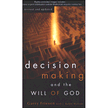 On Sunday I offered eight questions we ought to ask regarding the use of our Christian liberty. These questions come from 1 Corinthians 10:23-11:1 which I adapted from Garry Friesen (see below):
On Sunday I offered eight questions we ought to ask regarding the use of our Christian liberty. These questions come from 1 Corinthians 10:23-11:1 which I adapted from Garry Friesen (see below):
“Everything is permissible,” but not everything is helpful. “Everything is permissible,” but not everything builds up. No one should seek his own good, but the good of the other person.
Eat everything that is sold in the meat market, asking no questions for conscience’ sake, for the earth is the Lord’s, and all that is in it. If one of the unbelievers invites you over and you want to go, eat everything that is set before you, without raising questions of conscience. But if someone says to you, “This is food offered to an idol,” do not eat it, out of consideration for the one who told you, and for conscience’ sake. I do not mean your own conscience, but the other person’s. For why is my freedom judged by another person’s conscience? If I partake with thanks, why am I slandered because of something I give thanks for?
Therefore, whether you eat or drink, or whatever you do, do everything for God’s glory. Give no offense to the Jews or the Greeks or the church of God, just as I also try to please all people in all things, not seeking my own profit, but the profit of many, so that they may be saved. Imitate me, as I also imitate Christ.
Is there a biblical command I should follow regarding this issue? Is what you are considering truly an issue of liberty or are there specific commands in Scripture?
Is the exercise of my liberty helpful? 1 Corinthians 10:23a, “Everything is permissible,” but not everything is helpful…”
Does the exercise of my liberty edify? “Build up”
Is using my liberty self-serving at another’s expense? “No one should seek his own good, but the good of the other person.”
Is using my liberty something I can thank God for?
Is using my liberty something that will glorify God? Will the exercise of my liberty help make Jesus more famous or infamous? Is using my liberty worth imitating?
Is using my liberty following the example of Jesus? See Philippians 2:1-10. I adapted these questions from Garry Friesen's excellent book, Decision Making and the Will of God.
 |
Decision Making and the Will of God By Garry Friesen with J. Robin Maxson / Multnomah Publishers, Inc. Does God have a perfect will for each Christian? Can you be absolutely sure you've found God's individual will for your life? Garry Friesen examines the traditional view of God's will, then sets forth a different view that more accurately reflects biblical teaching. Practical issues such as choosing a mate, picking a career, giving of one's resources, and areas of disagreement between Christians are explored in depth, giving you a new approach to knowing the will of God. Taking into account the critiques and questions raised since this book was first published in 1980, this revised edition further clarifies Friesen's position, offers additional biblical support, and answers the most frequently asked questions. |




